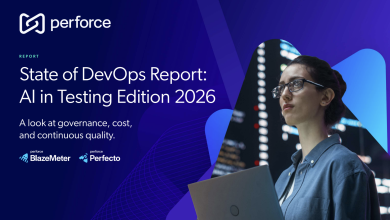
Artificial Intelligence (AI) is driving the next major evolution in the way businesses access talent, and freelancing sits at the centre of this transformation. As the freelance economy has matured over the past decade, companies have shifted from viewing freelancers as temporary resources to recognising them as a vital part of their strategic operations.
The integration of AI into talent sourcing and management has accelerated this change, making the process more efficient and precise. This shift is what can be called the “Second freelancer revolution,” where businesses, especially in Europe, are turning to freelancers to access the specialised skills they need to remain competitive.
Ten years ago, freelancing in Europe was still relatively niche, with many businesses unsure how to find and trust independent professionals. But today, there are over six million highly skilled freelancers across the continent. As companies face talent shortages, particularly in tech and data fields, they increasingly rely on freelancers to fill critical skill gaps. Indeed, 75% of European companies struggle to fill positions due to a lack of people with the right expertise. This has led to freelancing becoming an essential strategy, with 86% of organisations viewing freelancers as vital to their operations.
The rise of blended teams, or what we call ‘Superteams’ – a combination of internal employees and external freelance experts – illustrates how AI and freelancing reshape the workforce. These teams leverage the institutional knowledge and long-term perspective of full-time employees while benefiting from the fresh insights and technical expertise of freelancers. Freelancers, often early adopters of new technologies, can help internal teams experiment with innovative approaches and manage change more effectively. The result is a more dynamic, flexible, and scalable workforce.
Integrating AI into a talent search
Many organisations turn to tech platforms to source the best external talent. As freelancing becomes more integral to business strategy, sourcing platforms are turning to AI to enhance the way companies manage their freelance workforce. As a result, AI-powered tools help hiring managers find the right talent quickly and at the right cost, addressing one of the biggest challenges companies face – matching the right freelance talent with the right project.
AI not only improves the speed and accuracy of talent searches but also helps businesses better understand and define their project needs. AI-powered personal staffing assistant uses custom language models and state of the art machine learning to guide hiring managers through the process, offering suggestions for the best candidates and helping companies refine their requirements. This ensures that businesses can quickly find freelancers with the specific expertise they need, reducing the time spent on administrative tasks and allowing projects to start sooner. Indeed, projects that use AI to find talent start 15% faster than standard projects, showcasing the invaluable benefits of this tool.
AI as a helping artificial hand
Integrating AI into the freelance economy is paving the way for creating “superteams”, combining the best human expertise and AI-driven efficiency. These teams are more agile, innovative, and capable of responding to the challenges of the modern business landscape. With AI streamlining the process of finding and managing freelance talent, businesses can focus on building teams that drive strategic growth rather than being bogged down by administrative hurdles.
However, AI in freelancing isn’t about replacing human work; it’s about enhancing it. It is designed to support human decision-making, not replace it. Therefore, the approach to AI should be built on four key principles: assisting and augmenting humans, ensuring transparency in recommendations, using AI responsibly, and giving users clear choices about how AI is used. These principles should reflect the commitment to making sure AI is a tool that enhances human work rather than merely automating jobs.
The ethical use of AI is a priority. AI tools should be used responsibly, focusing on data privacy, transparency, and minimising environmental impact. There is a recognition that Generative AI models aren’t always the right choice for every situation. This approach is critical to maintaining trust in AI systems and ensuring that they are used in a way that benefits both businesses and workers.
Welcoming the new AI-powered workforce
It is no longer a secret that the future of work is driven by blended teams augmented by AI. Internal employees contribute deep knowledge of their company’s processes and culture, while freelancers bring fresh perspectives and cutting-edge skills. Together, they create a powerful combination that can drive faster, more innovative results. AI plays a crucial role in making these teams work efficiently, providing the tools to match the right freelancers with the right projects and allowing companies to scale their operations more easily.
In this new era, freelancing is no longer a secondary option for businesses. As the technology continues to evolve, it is expected to double the demand for freelancers rather than reduce it. Companies that once viewed freelancers as a way to fill temporary gaps are now turning to them as strategic partners, enabled by AI-powered talent platforms. The flexibility and adaptability of freelancers, combined with the precision and speed of AI, create a competitive advantage that businesses can’t afford to ignore.



